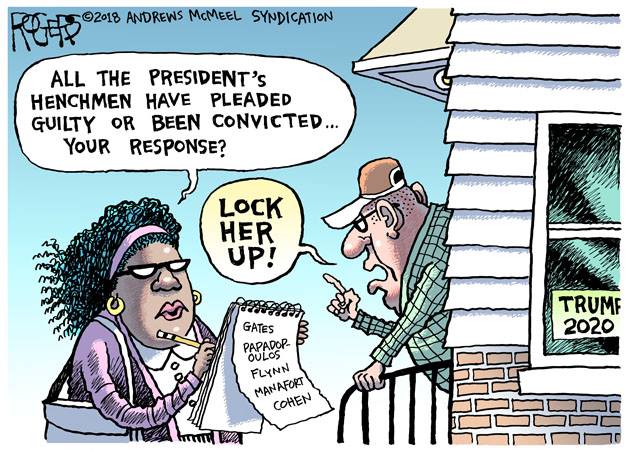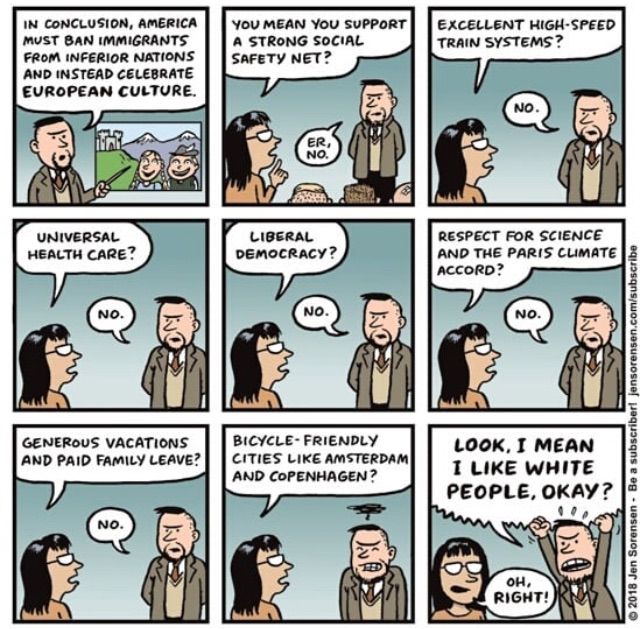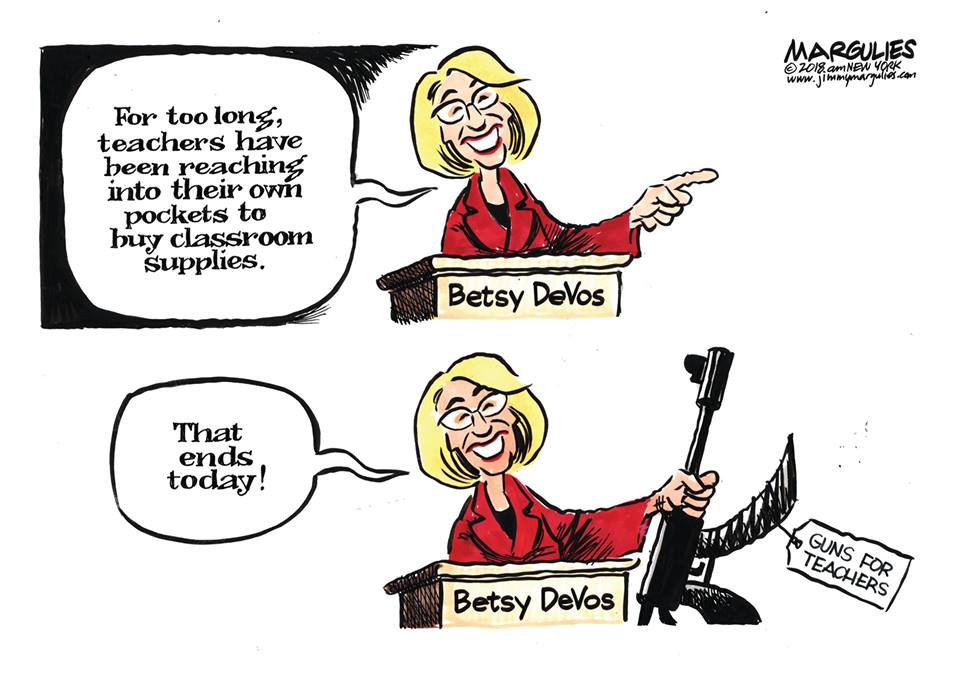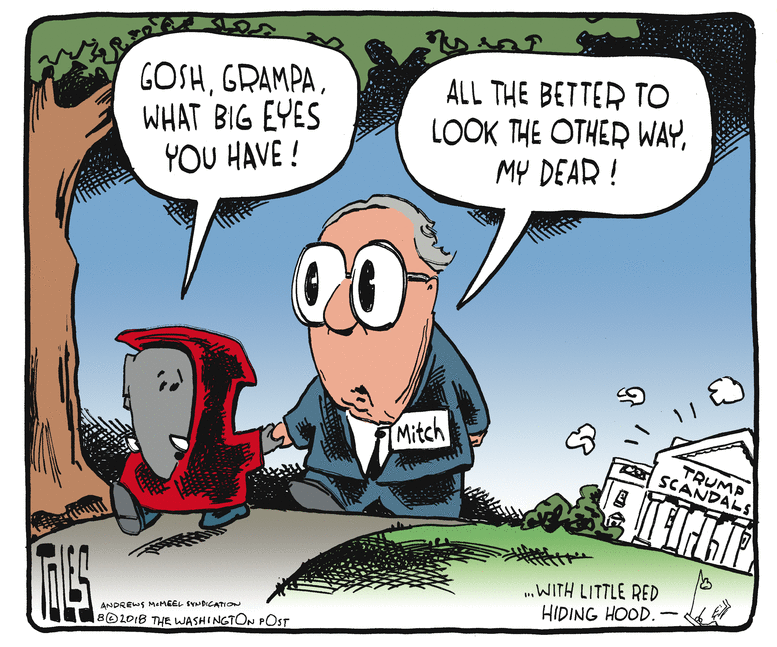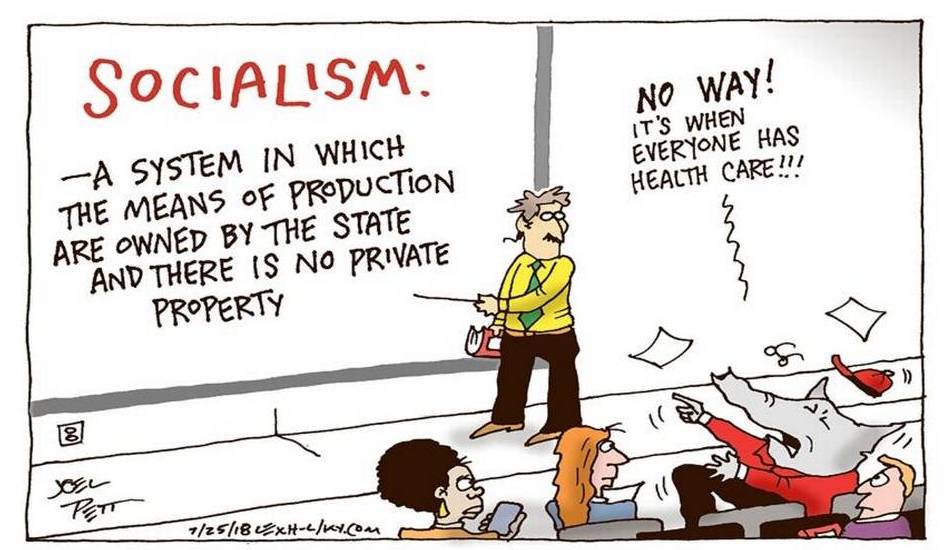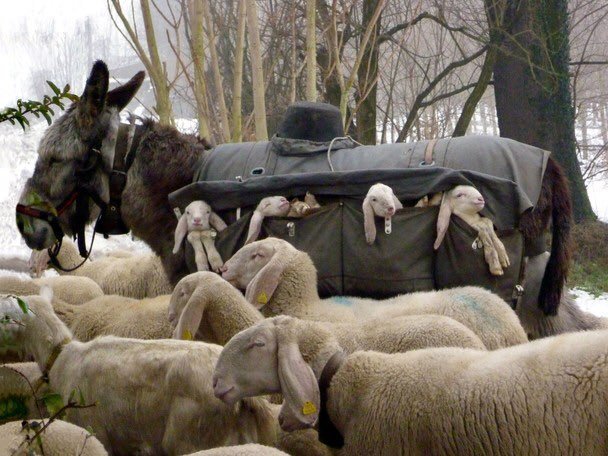The Daily Escape:

Fall in Hopkinton, MA – November, 2018 photo by Karen Randall
The 2020 election campaign has already started, regardless of whether we are ready.
“Big Idea” strategies are in the air. And the large group of potential Democratic presidential candidates are being discussed.
And we no longer have to chew on the failure by Democrats in 2016. We can now talk about lessons learned in the 2018 midterms, and how they may apply in 2020. Wrongo wants to highlight three Democrats who won in deeply Republican districts. Max Rose, who won on Staten Island in NYC; Kyrsten Sinema, who won the open Senate seat in Arizona; and Lauren Underwood, who won a Congressional seat in Illinois.
Rose won a district that went heavily for Trump in 2016. He beat a long-time incumbent Republican. He did it by asking for a chance to reshape the fortunes of working people. From the NYT:
He offered a simple, unifying message that was progressive in substance but relatively neutral in its delivery: that the system is rigged to benefit special interests, that the little guy is getting stiffed over and over, that we need better infrastructure and stronger unions.
Demographic change helped. Rose’s district covers parts of Staten Island and Brooklyn, where Millennials who have been priced out of living in Manhattan and trendy Brooklyn are now locating.
Kyrsten Sinema’s story is different on the surface, but similar in what got her elected. A three-term member of Congress, she campaigned on her biography. She was homeless for three years as a child. Sinema is an openly bisexual former Green Party activist who moved to the political center.
Sinema promised to be a nonpartisan problem-solver. She campaigned on health care and protections for people with pre-existing conditions. Sinema treaded lightly on immigration, but probably looked pro-immigrant versus her opponent Martha McSally, another member of Congress who was very anti-immigration. 2.1 million Latinos live in Arizona, and after Trump’s visit in October, there was a spike in Latinos returning early ballots. Most Arizona residents vote by mail, and many Latinos voted for Sinema.
Lauren Underwood won an Illinois Congressional seat held in the past by the infamous Denny Hastert. The 32-year-old African-American nurse, unseated four-term Rep. Randy Hultgren in a district that is 86% white. The district was gerrymandered after the 2010 census to make it an even safer Republican seat. She won by stressing health care for all Americans.
These three candidates were successful in traditionally Republican places. They each had great personal stories. They each ran as problem solvers who wanted to help working families. This shows there are two threads that mattered in 2018: The candidate, and a message that addressed the things that were alienating people in their districts.
If we widen out our view to America today, alienation is behind the rise of Trumpism, and the rise of populism across the world.
The leading cause of people’s alienation is economic inequality.
Candidates can win as centrists if they are willing to fight economic inequality, because everybody knows that the system is rigged to benefit special interests.
Progressives can also win on economic inequality, because the largest divide in our country is between the 98% and the 2%. This idea can unite us, because nowhere in the US do the capitalists outnumber the salaried and hourly wage people.
Remember what Franklin Roosevelt said in his acceptance speech: (emphasis by Wrongo)
Throughout the nation men and women, forgotten in the political philosophy of the Government, look to us here for guidance and for more equitable opportunity to share in the distribution of national wealth… I pledge myself to a new deal for the American people. This is more than a political campaign. It is a call to arms.
Today, Democrats need working people to vote for them if they want to win decisively. But since they govern like mainstream Republicans when in office, they must change to an FDR-like call to action.
It is possible to build voting coalitions that pick off a few red states in 2020. In fact, the midterm results were a terrible leading indicator for Trump in 2020. Without Hillary heading the ticket, Midwest states like Michigan and Wisconsin appear to be returning to Democrats. Pennsylvania is already back.
The Dems need to convince voters that governing the country in a manner that benefits everyone is a better idea than governing the country in a manner that benefits only a few.
The potential new votes for Democrats by following this strategy is largely the pool of non-voters. They are the majority in this country, and they are alienated.
They also outnumber the small percentage of persuadable Republican voters.
Nominating high quality candidates and fighting alienation are the keys to success in 2020.


